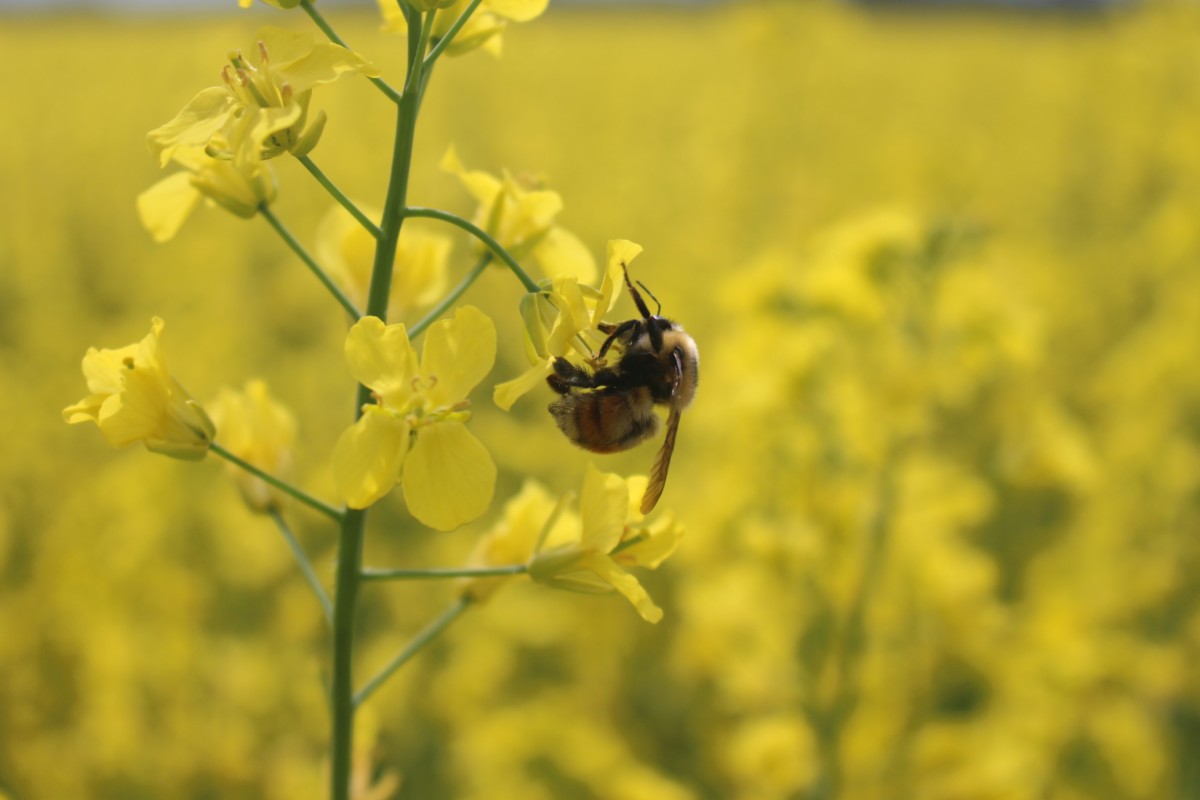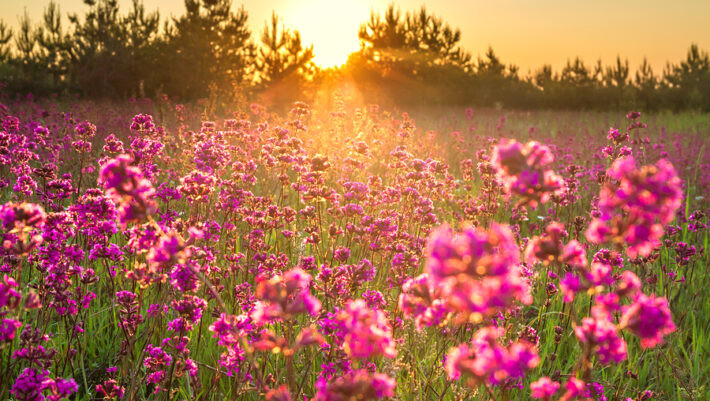Contaminated Wildflower Nectar and Pollen Puts Bees and Humans at Risk
As first reported by Sustainable Pulse, Contaminated Wildflower Nectar and Pollen Puts Bees and Humans at Risk.
Bees are likely to be at high risk from exposure to glyphosate, the most widely used weedkiller in the world, via contaminated wildflower nectar and pollen after pre-harvest spraying (desiccation), according to new research from Trinity College Dublin and Dublin City University scientists in Ireland.
Glyphosate is the most frequently used weedkiller within the European Union and is also very common in other parts of the world. The residues the Irish scientists found in nectar in this study exceeded the European maximum permitted levels of glyphosate in honey and honey bee products, which suggests they could be harmful to honeybees and those eating the honey.
Residues of glyphosate have previously been found in nectar and pollen collected by bees foraging on plants that have been selectively targeted with weedkiller, but this is the first time it has been reported in unsprayed wildflowers growing near sprayed fields. Glyphosate is intended to only kill plants but it has been shown to harm the digestive systems of honeybees and bumblebees, which makes them more vulnerable to infections, and it may have other negative consequences.
This is the first time glyphosate has been reported in unsprayed wildflowers under conventional farming conditions and while more research is needed to find how much higher glyphosate concentrations would be in directly sprayed plants, the researchers stated that wild bees and honeybees will visit the contaminated wildflowers to collect pollen and nectar. They will thus be exposed to glyphosate and that could impact their health and the critical pollination service they provide.
In three of the studied locations, glyphosate residues were found in pollen and nectar of the blackberry flowers within a week after spraying took place. When the weedkiller was used as a pre- or post-emergence spray on oilseed rape crops (two months before sampling), no residues were detected. Knowing that bees may be exposed to glyphosate residues in the environment makes it important that more research takes place to assess the glyphosate impact on multiple bee species.
The Trinity College Dublin scientists stated that they recommend the immediate investigation of glyphosate as a desiccant before harvesting crops to better understand how this impacts non-target flowering plants growing near crop fields to enable a greater evidence base for evaluation of the renewal of market authorization for glyphosate in the European Union.
Thank you to Sustainable Pulse for this important information!
Thanks for being here and please don’t forget to check out our health store for some solutions for your health and wellness. Do you have an air purifier? It is so important, especially when you sleep. We think this one is the best and so does Erin Brockovich! I have two, one in my living area and a smaller one in my bedroom! Check it out here: Thanks for supporting Food Integrity Now!



0 Comments